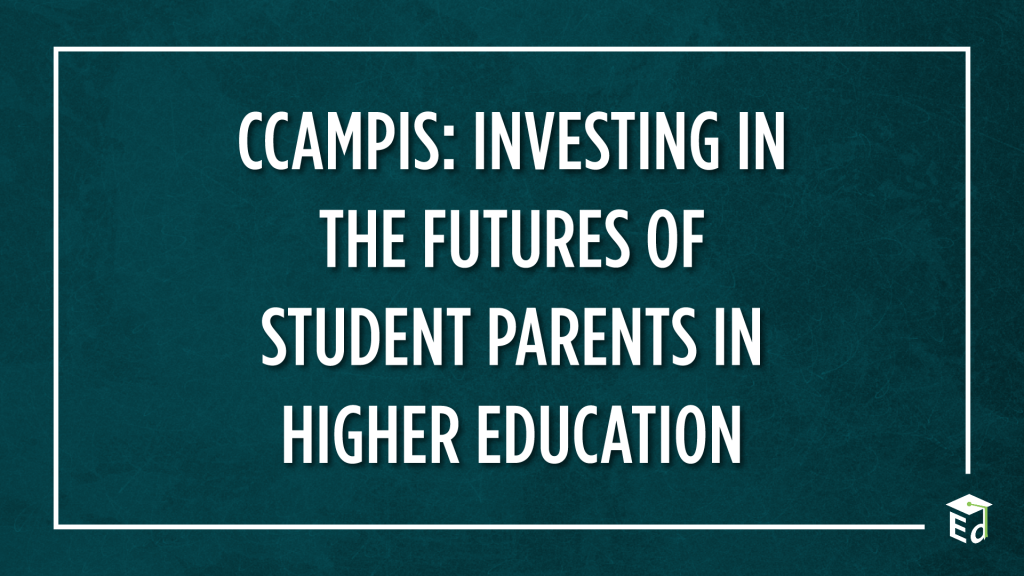
By: Michelle Asha Cooper, Ph.D., Acting Assistant Secretary, Office of Postsecondary Education
The COVID-19 pandemic proved to all of us just how important access to childcare and early childhood education is not only for children, but for parents and caretakers. I know I felt that tension, personally, as I too juggled childcare responsibilities for my daughter and work at the beginning of the pandemic. Eventually, I was able to enroll her in a universal pre-K program. However, due to pandemic policies, that was only four hours per day, and balancing work, virtual school, and the need for additional childcare was a complicated mix.
I was fortunate at least to have some options, but not all parents of little ones have access to reliable and affordable childcare. This is especially true for the 26 percent of students who are pursuing higher education who are also parents. These are students who seek to improve the lives of themselves and their families by working and attending college simultaneously. However, high-quality and affordable childcare can often be challenging to find.
On average, childcare costs for just one child range from $9,200 and $9,600 per year, and the costs are even higher for parents of infants and those living in urban areas. For many student parents, the lack of access to affordable childcare can be a tall hurdle to enrolling in college and crossing the finish line of graduation. As a result, student parents are less likely to earn college degrees and credentials than their peers who do not have children and are more likely to default on their loans.
In order to help more student parents graduate and earn credentials from institutions of higher education, Congress included the Child Care Access Means Parents in School (CCAMPIS) program in the 1998 amendments to the Higher Education Act of 1965, with funding beginning in 1999. The CCAMPIS program provides grants to colleges and universities to support or establish campus-based childcare programs to meet the needs of low-income student parents enrolled on their campuses.
This investment was a major step towards achieving equity. However, caps on maximum awards that the Department of Education could provide limited the ability to fully address the realities of the higher costs associated with establishing and maintaining these types of programs. Additionally, the limited amount of funding the Department was allocated meant a number of potential grantees had to go unfunded, thereby excluding many student parents and children who could benefit from these types of support.
The Department understands that with the right support and resources, student parents can have an equal opportunity at achieving educational success. That is why we’ve made recent changes to the CCAMPIS grant to increase funding so that more student parents can benefit from high quality childcare support. The Consolidated Appropriations Act, 2022 signed into law by President Joe Biden on March 15, 2022, included lifting the previous maximum for CCAMPIS awards from 1% of Pell award funding to 3% and allowed for a new grant minimum of $90,000, triple the prior minimum of $30,000.
Additionally in our new Notice Inviting Applications for the CCAMPIS grant, the Department has included three invitational priorities for projects that focus on supporting students that are single parents, increasing campus-based childcare for infants and toddlers, and providing wrap-around services for low-income parents in postsecondary education.
The updated CCAMPIS grant will help more student parents and their children access affordable, high-quality childcare and reflects the Biden-Harris Administration’s strong commitment to education equity and success for student parents across the country.

